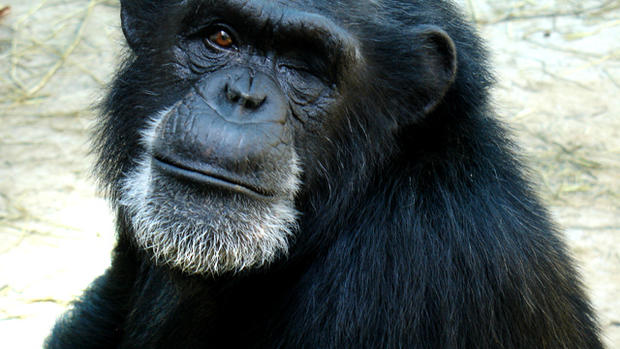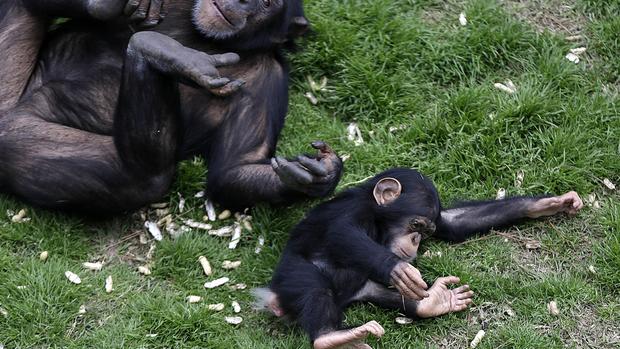Merck latest pharma to end chimpanzee research
TRENTON, N.J. -- Drug maker Merck & Co. is joining two dozen other pharmaceutical companies and contract laboratories in committing to not use chimpanzees for research.
The growing trend could mean roughly 1,000 chimps in the U.S. used for research or warehoused for many years in laboratory cages could be "retired" to sanctuaries by around 2020.
That's according to Kathleen Conlee of the Humane Society of the United States, which seven years ago began urging companies to phase out all chimp research.
The trend is driven by improved technology, animal alternatives and pressure from animal rights groups, the National Institutes of Health and Congress.
Last June, reacting to an Institute of Medicine study Congress had requested that concluded nearly all chimp research is unnecessary, the NIH announced it would retire and send about 90 percent of government-owned research chimps to the Chimp Haven sanctuary in Keithville, La. It's now home to about 160 chimps, with nearly 60 more to arrive soon.
"It's been a long road in trying to end the use of chimpanzees in research, and we're now at a turning point," Conlee told The Associated Press Thursday. "We're going to keep on (advocating) until the chimpanzees in laboratories are all in sanctuaries."
Merck spokeswoman Caroline Lappetito said the company, based in Whitehouse Station, N.J., decided late last year to stop research on chimpanzees and switch to alternative types of testing.
"The science has advanced, and we don't really need it," Lappetito said.
Merck, the world's third-biggest drug maker, is the largest to make the switch.
Companies that develop medicines and consumer products such as cosmetics have long used animals to test safety and effectiveness. In the case of experimental medicines, drugmakers must test on animals before the Food and Drug Administration will let them do the human testing needed for approval of a new therapy.
Nearly all animal experiments in the U.S. involve mice, rats and guinea pigs, although some are done on dogs and great apes, almost always chimpanzees.
Many companies previously said it was necessary to test potential medicines and vaccines on nonhuman primates because they needed an animal in which the anatomy and disease course were very similar to that in humans.
That thinking changed as technology allowed researchers to do initial testing via computer simulations, in bacteria or cells, and in animals as small as fish. Many drug makers also found ways to do testing on far fewer animals and to limit the discomfort of experiments by using painkillers and tranquilizers. And many of the companies pledging not to use chimps in the future never did so.
British drugmaker GlaxoSmithKline PLC was one of the first to stop research in chimps, back in 2008.
"Research we did on nonhuman primates was kept to a minimum" even before that, said spokeswoman Melinda Stubee.
Because chimpanzees used for commercial medical research generally are confined in the labs of contract testing companies, Conlee said the Humane Society is trying to convince them that there's no longer enough demand to continue warehousing chimpanzees for potential future work. She hopes they'll pay to support those chimpanzees in one of five U.S. accredited sanctuaries for former research chimps.

